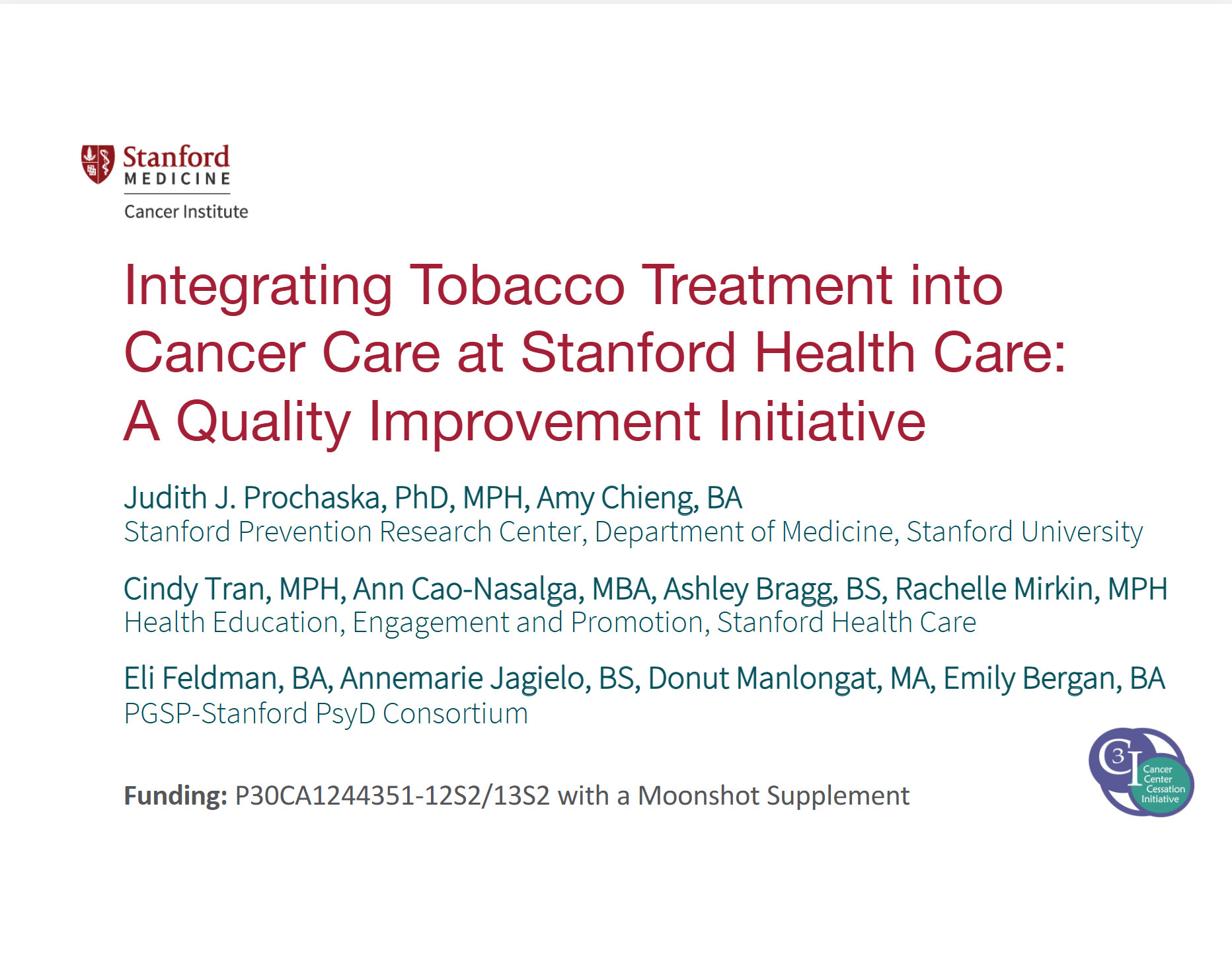Integrating Tobacco Treatment into Cancer Care at Stanford Health Care: A Quality Improvement Initiative
February 28th, 2023
Smoking causes nearly 1 in 3 cancer deaths. In 2018 and 2020, Stanford Cancer Institute (SCI) received two National Cancer Institute (NCI) Moonshot P30 Supplements to integrate, evaluate, and expand evidence-based tobacco cessation treatment into cancer care. The funding, technical, and peer support from the C3I collaboration was instrumental in extending Stanford’s tobacco treatment service into 20+ clinics across 3 cancer centers. This quality improvement program is in partnership with Stanford Health Care’s Health Education, Engagement and Promotion (HEEP) program. The integrated tobacco treatment service is reaching and engaging patients (over 1350 patients to date), supporting their efforts to achieve a tobacco-free lifestyle (1:3 quit at 24 months), and with high program satisfaction (>70% recommend the program). Team huddles monitor process and progress, and a dedicated tobacco treatment specialist (TTS) and student training model enable personalized outreach for engagement. New initiatives include piloting telehealth group-based care, hypnosis, and a virtual reality platform. The tobacco treatment QI program has received institutional and national recognition of innovation and excellence. The presentation will highlight lessons learned and the value of clinical integration and collaboration in enhancing patient outcomes.
Judith Prochaska
Judith Prochaska, PhD, MPH is Senior Associate Vice Provost for Clinical Research Governance at Stanford University and Deputy Director and a tenured Professor of Medicine with the Stanford Prevention Research Center. Dr. Prochaska is a member of the Stanford Cancer Institute, a licensed clinical psychologist with addiction medicine privileges with Stanford Healthcare, and a fellow and past president of the Society for Research on Nicotine and Tobacco. Her research program is leveraging technology to bring tobacco cessation treatment into novel settings and to populations with high smoking prevalence and with attention to medical education and clinical practice. She has authored over 250 peer-reviewed publications, consults to multiple federal and international public health agencies, and has contributed to U.S. Surgeon General reports on treating smoking.
Acknowledgment of Funding: NCI Moonshot Supplements 3P30CA124435-11S2/12S1; 3P30CA124435-13S


